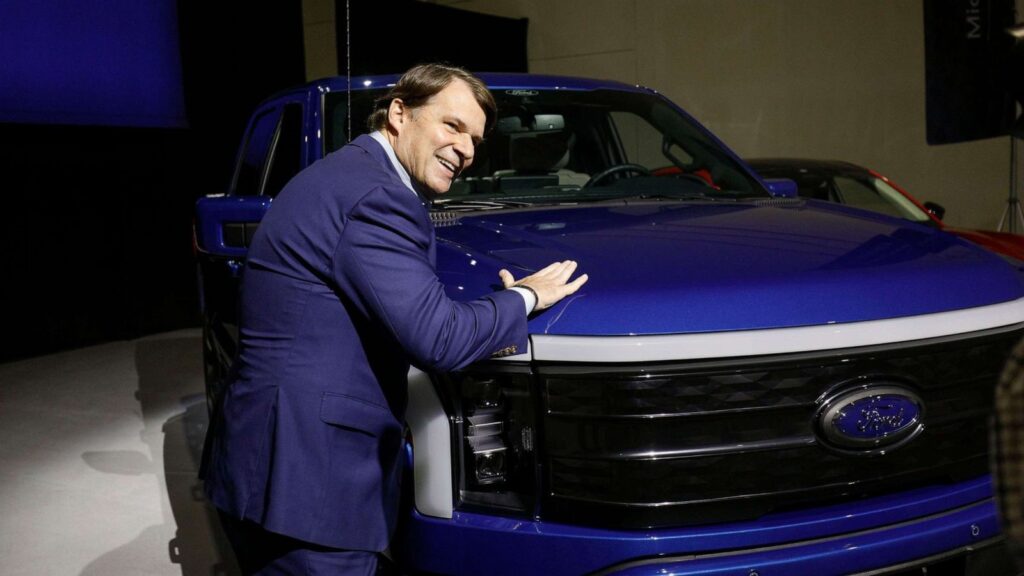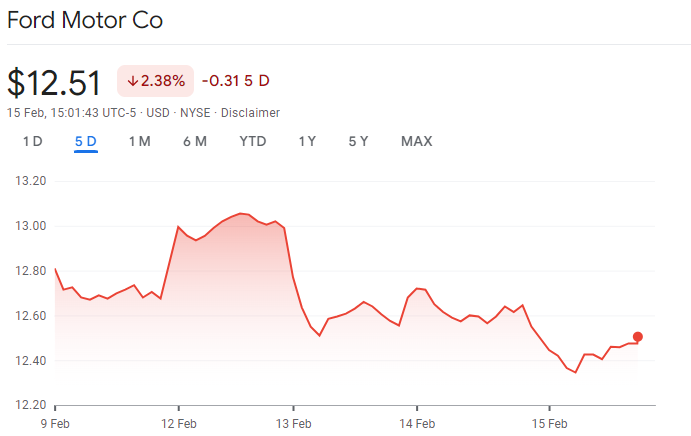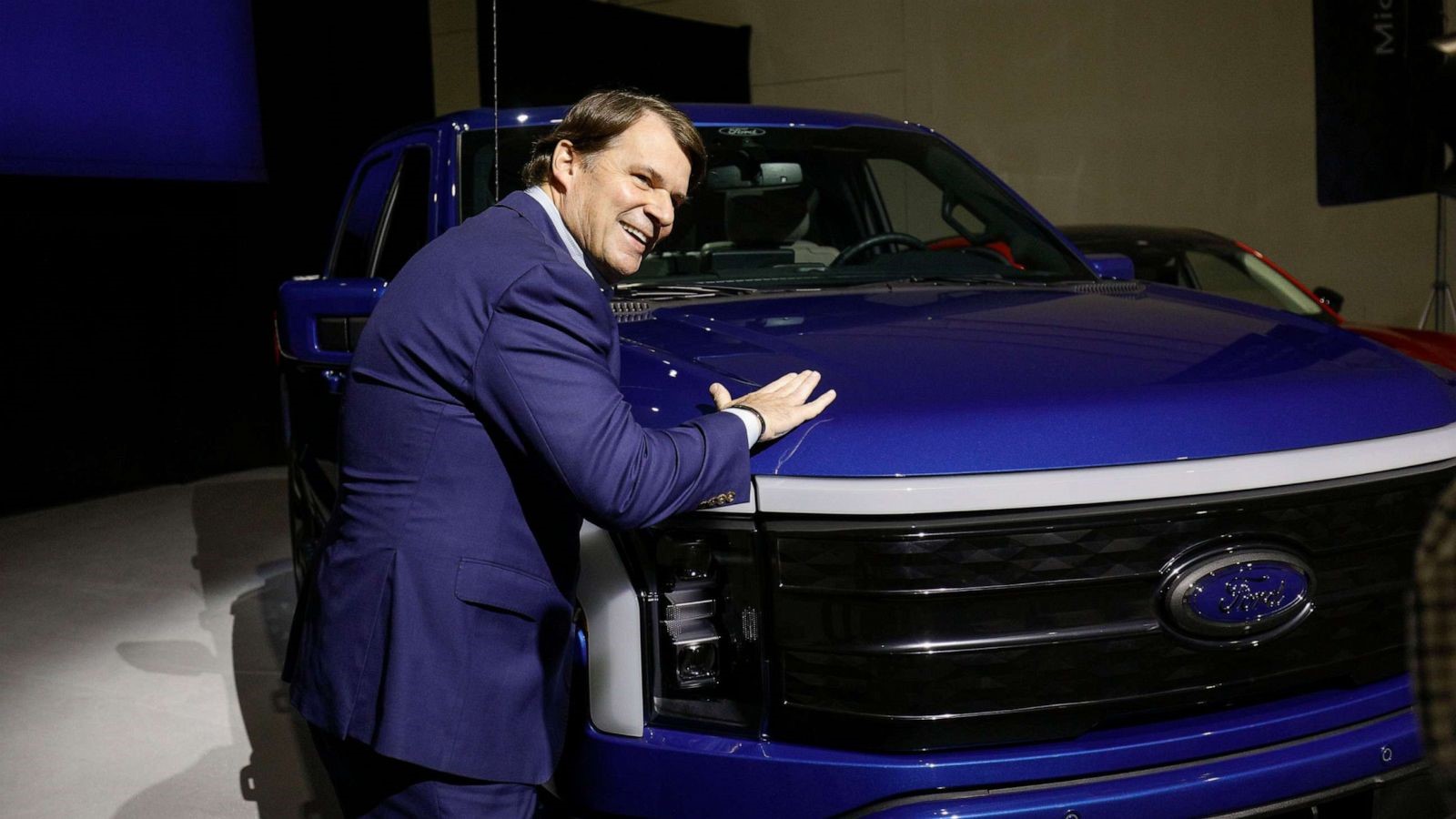Ford CEO Shifts Focus, Identifying ‘Pro‘ Business as the Future of the Auto

In a recent address, Ford Motor CEO Jim Farley encouraged Wall Street to shift its focus away from Tesla and its Full Self-Driving (FSD) technology, urging investors to concentrate on Ford’s “Pro” fleet business as the future of the automotive industry. Farley drew parallels between Ford Pro and Deere & Co. seven years ago, highlighting the unit’s impressive performance with a doubling of pretax earnings to $7.2 billion last year.
In a bold move that has sent ripples through Wall Street, Ford Motor CEO Jim Farley has urged investors to shift their attention away from Tesla, signaling that the true future of the auto industry lies in Ford’s burgeoning “Pro” business. Farley’s statements, made during a Wolfe Research conference, emphasized the strength and potential of the Pro fleet business, steering attention away from the electric vehicle giant Tesla and its Full Self-Driving (FSD) systems.
During a Wolfe Research conference, Farley emphasized the significance of Ford Pro, encompassing traditional fleet and commercial operations, emerging telematics, logistics, and other connective services for businesses of varying scales. The unit, boasting half a million subscribers with a 50% gross margin, is anticipated to achieve pretax earnings between $8 billion and $9 billion this year. This projection surpasses expectations for Ford’s traditional “Blue” business and contrasts with projected losses in its Model e EV business.
Farley’s strategic redirection is rooted in the notable success of Ford Pro, a unit that demonstrated impressive growth by doubling pretax earnings to $7.2 billion in the previous year. Drawing parallels to the trajectory of Deere & Co. seven years ago, Farley highlighted the potential for substantial gains in Ford Pro, referencing the farm equipment maker’s stock, which soared by approximately 235% over a similar timeframe.
While Tesla’s revenue and earnings from its FSD software remain undisclosed, Ford anticipates a substantial increase in revenue from nontraditional subscription services for Ford Pro, reaching $2,000 per vehicle annually. Farley reiterated that 20% of Pro’s overall revenue is expected to be derived from such services by 2026.

Farley argued that Ford Pro is undervalued within the company, a sentiment echoed by Morgan Stanley’s Adam Jonas, who likened it to Ford’s “Ferrari.” Jonas drew parallels with Ferrari’s undervaluation before being spun out of Fiat Chrysler, suggesting that Ford Pro is similarly being overlooked by investors.
Despite skepticism from some investors, Farley defended Ford Pro’s potential and acknowledged delays in the company’s EV initiatives. Ford Pro encompasses traditional fleet and commercial activities, alongside emerging technologies such as telematics, logistics, and other connective services tailored for business clients. The unit caters to a wide spectrum of customers, ranging from local tradespeople like plumbers and electricians to large corporations. In addition, it includes parts and services tailored specifically for businesses, contributing to its robust financial performance. Ford is scaling back spending on EVs, including domestic battery production, in response to slower-than-expected consumer adoption and substantial losses on current electric vehicle models. Farley noted that fleet customers are embracing all-electric vehicles faster than anticipated, aligning with Ford’s broader “Ford+” restructuring and growth plan led by Ted Cannis within the Pro unit.
Farley’s strategic emphasis on Ford Pro comes at a time when Ford is navigating the challenges and opportunities of the evolving automotive landscape. With Tesla continuing to command attention, Farley’s call for investors to shift their gaze towards Ford Pro signifies a bold assertion of the company’s commitment to redefining the future of the auto industry. As Ford continues to innovate and invest in its Pro business, the industry awaits to see whether this strategic shift will indeed position Ford as a formidable competitor in the rapidly evolving automotive landscape.
